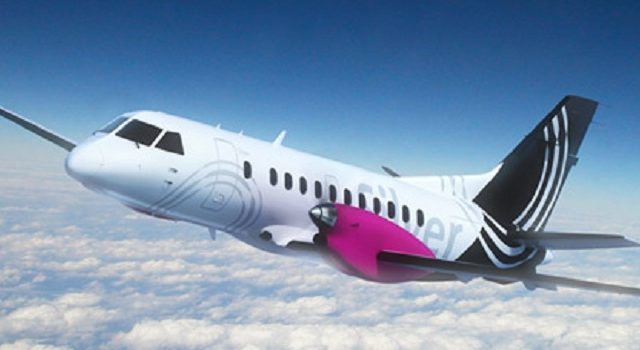Subsidized airline blames federal regulations for Mississippi pullout

TARNISHED SILVER: Silver Airways is abandoning several small Mississippi airports despite getting a generous subsidy from the federal government’s Essential Air Service program. The company cites federal regulations as one of the reasons.
By Steve Wilson | Mississippi Watchdog
A federally subsidized airline serving several small airports in Mississippi and Alabama blames, in part, the federal government for it’s failure.
How’s that for irony.
Silver Airways, even with an Essential Air Service subsidy worth $15 million, failed to serve Hattiesburg-Laurel, Meridian, Greenville and Tupelo airports in Mississippi and the Northwest Alabama Regional Airport in Muscle Shoals, Ala. With the pullout of Silver Airways from those markets, the five airports are left scrambling for other subsidized replacements before Silver ends its service Sept. 30.
The EAS subsidy was developed after airline deregulation in 1978 and was intended to sunset after 10 years. Now, 36 years later, it’s not only still here but growing. This year’s outlay adds up to more than $218 million to serve 117 communities.
A 2011 study by the American Bus Association, Reason Foundation, National Resources Defense Council and Taxpayers for Common Sense found that 38 EAS communities are within 150 miles of a larger airport and could be reached via commercial bus service.
The five airports Silver is leaving fit this description.
“The case for many EAS subsidies is pretty weak,” said Robert Poole, director of transportation policy at the Reason Foundation. “Clearly, we are never going to cut back the large, wasteful programs unless we develop the political will to cut back or eliminate the small ones, and EAS should be high on the list.”
Silver replaced Delta, which received a smaller subsidy to serve the same airports. But in Silver’s departure notice to the Department of Transportation, it blamed low enplanements (boarding passengers), new regulations on flight crew rest and another rule enacted in 2013 that requires first officer (co-pilot) hires to have a minimum of 1,500 flying hours. The rule has created a large shortage of airline pilots.
MISSISSIPPI IS A BARGAIN: Compared to some of the other Southeastern states involved in the Essential Air Service program, the four Magnolia State airports are a bargain.
“It really hurts the small airlines,” said Hattiesburg-Laurel Regional Airport Executive Director Tom Heanue. “With pilots, it’s like depth with a football team. The bigger teams have plenty of depth on the offensive line or any other position, but when you don’t have any depth, it hurts and there aren’t a lot of guys to fill in. Silver tried to work through it.”
The Federal Aviation Administration will release an announcement of bids for the routes this summer, but there’s no guarantee another carrier will bid on all of them.
Heanue said the chances of an airport getting a carrier after a lapse in service would be slim to none. Hattiesburg’s airport opened in 1974 and has had EAS-subsidized service since 1979.
“If it’s not interconnected with another airline, there’s just no point in wasting the subsidy,” Heanue said. “If it’s to the point where it’s a waste of time and money with an inferior product, why waste that money? I hate to just keep something just to have it, if it’s going to waste tax dollars. If that’s the case, we’re prepared to just be a general aviation airport.”
Meridian Airport Authority President Tom Williams said Silver’s poor customer service and reliability issues proved detrimental to the number of air travelers choosing the Meridian Airport. The airline received a subsidy of more than $2.4 million to provide Meridian with 13 nonstop round trips per week to Atlanta. Delta only took a subsidy of more than $684,000 for the same number of flights. At one point, 47 percent of Silver flights were canceled.
“You’re going to get complaints when 10 percent of flights get canceled,” Williams said. “But when you’ve got 47 percent consistently, your travelers will completely lose confidence in your service. It’s like the audience at a movie theater. The third time the projector and the popcorn machine break, they aren’t going back to that theater.”
The decline was precipitous after Delta left in 2012. The airport had 18,605 enplanements in Delta’s last full year in 2011. In nine months with Delta and the remaining three with Silver, the numbers declined to 15,718.
In 2013, it fell even further — to 6,981. Numbers for the first three months of 2014 fell even more, with 314 enplanements in January, 254 in February and 228 in March. According to Williams’ calculations, it would give Meridian a modern-era low of 3,184 enplanements.
“That just blows my mind,” Williams said.
Silver’s inability to follow federal regulations that allow military members to board its flights put an additional crimp in Meridian’s passenger numbers. Naval Air Station Meridian and the Mississippi Air National’s 186th Refueling Wing personnel opted to use the Jackson–Medgar Wiley Evers International Airport.
At the Hattiesburg-Laurel Regional Airport, the reliability numbers were even worse, according to Heanue. Hattiesburg had 5,808 enplanements in 2013 after having 13,857 in 2012 — Delta for nine months and Silver for three — and 16,095 in 2011, all Silver.
Silver received an annual subsidy of more than $2.9 million to provide 12 weekly trips to Atlanta from Hattiesburg, up from the $1.3 million that Delta received.
The other airports Silver is leaving suffered similar issues of declining enplanements. Greenville’s Mid-Delta Airport dropped from 7,417 enplanements in 2011 to 5,181 in 2012. Tupelo declined from 12,615 to 8,191. The Northwest Alabama Regional Airport in Muscle Shoals went from 7,812 in 2012 to 4,160 in 2011.
Contact Steve Wilson at swilson@watchdog.org
Get regular updates on Mississippi through our Facebook or Twitter accounts







